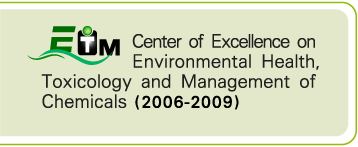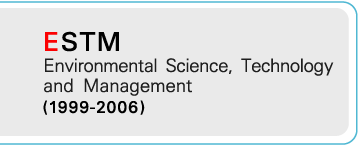การตรวจวิเคราะห์ปริมาณโลหะหนักในอาหาร
ดร.นุชนาถ รังคดิลก, สุมลธา หนูคาบแก้ว และ รศ.ดร.จุฑามาศ สัตยวิวัฒน์ ห้องปฏิบัติการวิจัยเภสัชวิทยา สถาบันวิจัยจุฬาภรณ์ (CRI), สถาบันบัณฑิตศึกษาจุฬาภรณ์ (CGI) และศูนย์ความเป็นเลิศด้านอนามัยสิ่งแวดล้อมและพิษวิทยา โลหะหนัก หมายถึง ธาตุที่มีค่าความถ่วงจำเพาะมากกว่าน้ำ 5 เท่า ขึ้นไป ซึ่งโลหะหนักบางชนิดมีประโยชน์ต่อร่างกาย เช่น แมงกานีส (Mn), เหล็ก (Fe), ทองแดง (Cu) และสังกะสี (Zn) เป็นต้น แต่โลหะหนักบางชนิดมีความเป็นพิษต่อร่างกาย เช่น ปรอท (Hg), ตะกั่ว (Pb) และแคดเมียม (Cd) นอกจากนี้สารหนู (As) ซึ่งจัดอยู่ในกลุ่มธาตุกึ่งโลหะ (Metalloid) แต่สารหนูมีความเป็นพิษต่อร่างกาย จึงมักจะถูกรวมอยู่ในกลุ่มโลหะหนักที่มีความเป็นพิษด้วย โลหะหนักเหล่านี้สามารถเกิดขึ้นได้เองในธรรมชาติ โดยอาจมาจากการทำเหมืองแร่ โรงงานผลิตสารเคมี โรงงานผลิตไฟฟ้าโดยใช้ถ่านหิน การทำแบตเตอรี่ การใช้ปุ๋ยและยากำจัดศัตรูพืชในการเกษตรกรรม แล้วจะถูกปลดปล่อยออกสู่สิ่งแวดล้อมและบรรยากาศ หากไม่มีการบริหารจัดการกากของเสียที่ดี จะทำให้เกิดการปนเปื้อนโลหะหนักเหล่านี้ในสิ่งแวดล้อมและเข้าสู่ห่วงโซ่อาหารได้ ทำให้เกิดปัญหาการปนเปื้อนในอาหารสูงเกินกว่าเกณฑ์มาตรฐานที่อนุญาตให้บริโภคได้อย่างปลอดภัย ถ้าคนหรือสัตว์เลี้ยงที่บริโภคอาหารและน้ำที่มีโลหะหนักปนเปื้อนเป็นเวลานาน… (read more)
 Center of Excellence on Environmental Health and Toxicology (EHT)
Center of Excellence on Environmental Health and Toxicology (EHT)










